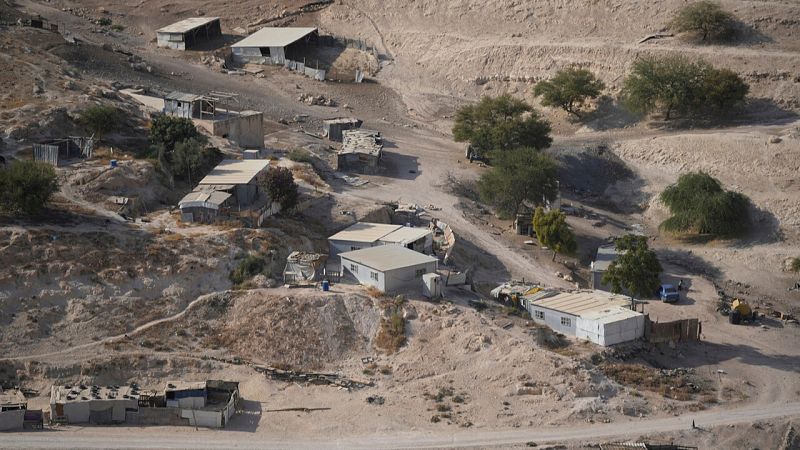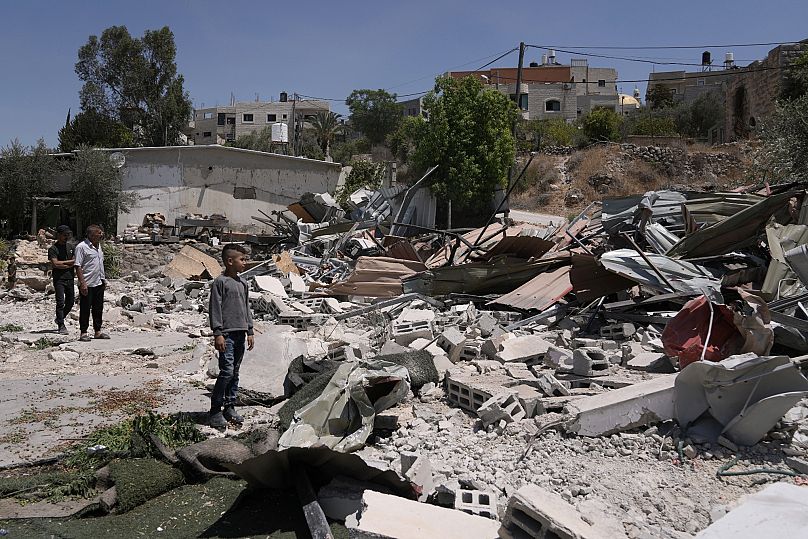Israel approves controversial West Bank settlement project as IDF begins Gaza City assault

Israel has given final approval for a controversial settlement project in the occupied West Bank in a significant blow to the prospects of Palestinian statehood.
Settlement development in E1, an open tract of land east of Jerusalem, has been under consideration for more than two decades, but was frozen due to US pressure during previous administrations.
The Israeli occupation of Palestinian territories is illegal under international law. Last year, the International Court of Justice declared in a landmark ruling that Israel should end settlement activity in the West Bank and East Jerusalem and end its occupation of those areas, as well as Gaza, as soon as possible.
Far-right Finance Minister Bezalel Smotrich, a former settler leader, cast the approval as a rebuke to Western countries that announced their plans to recognise a Palestinian state in recent weeks.
“The Palestinian state is being erased from the table not with slogans but with actions,” he said on Wednesday. “Every settlement, every neighbourhood, every housing unit is another nail in the coffin of this dangerous idea.”
Several countries, including the UK and the Netherlands, have in recent weeks moved to sanction Smotrich, as well as National Security Minister Itamar Ben-Gvir for inciting settler violence against Palestinians and calling for the ethnic cleansing of Gaza.
In a post on X, British Foreign Secretary David Lammy condemned the approval of the E1 project, calling it "a flagrant breach of international law".
Germany's Foreign Ministry spokesperson Josef Hinterseher also condemned the move during a news conference on Wednesday. "The position of the federal government is clear: we strongly reject this approval. The settlement construction violates international law and relevant UN Security Council resolutions."
The location of E1 is significant because it is one of the last geographical links between the major West Bank cities of Ramallah, in the north, and Bethlehem, in the south.
The two cities are 22 kilometres apart, but Palestinians traveling between them must take a wide detour and pass through multiple Israeli checkpoints, spending hours on the journey. The hope was that, in an eventual Palestinian state, the region would serve as a direct link between the cities.
Israel’s expansion of settlements is part of an increasingly dire reality for Palestinians in the occupied West Bank as the world’s attention focuses on the war in Gaza. There have been marked increases in attacks by settlers on Palestinians, evictions from Palestinian towns, Israeli military operations, and checkpoints that choke freedom of movement.
IDF says it has begun Gaza City offensive
The Israeli military has announced it has begun the first stage of its planned military offensive to seize the enclave's largest urban centre, Gaza City.
Brigadier General Effie Defrin, Israel's military spokesperson, said on Wednesday that "IDF forces are holding the outskirts of Gaza City".
Israel is calling up 60,000 reservists as it ramps up fighting in Gaza while negotiators scramble to strike a ceasefire to end the war in Gaza, now nearing its two-year mark.
US Ambassador to Israel Mike Huckabee has blamed a recent breakdown in Gaza ceasefire talks on the decision by some European leaders to recognise Palestinian statehood.
Huckabee, who is himself a long-time opponent of Palestinian statehood, said the “noise that has been made by European leaders recently ... is having the counterproductive effect that they probably think that they want," in an interview with the Associated Press.
In a country of fewer than 10 million people, the call-up of reservists is the largest in months and carries economic and political weight.
It comes days after hundreds of thousands of Israelis rallied for a ceasefire, and as rights groups warn that an expanded assault could deepen the crisis in the Gaza Strip, where most of the roughly 2 million inhabitants have been displaced, many areas have been reduced to rubble, and the population faces the threat of famine.
Today


